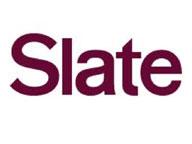School News
—
Hardik Shah, MBA ‘13, explains how his MBA helped him change from engineering to a consulting career
—

Excerpt from TopMBA -- “One of the key MBA skills I gained was learning not to just focus on getting the right answer, but to be aware of how to get there. There are always several ways to solve a problem, but in real life there are several constraints, so knowing which path to take is critical. I think it has made a huge difference in my approach to solving problems. Now, when I look at the problem, I don’t just jump in; instead I take a step back and focus on figuring out the best approach to solve the problem."
School News
Hardik Shah, MBA ‘13, explains how his MBA helped him change from engineering to a consulting career
—

Excerpt from TopMBA -- “One of the key MBA skills I gained was learning not to just focus on getting the right answer, but to be aware of how to get there. There are always several ways to solve a problem, but in real life there are several constraints, so knowing which path to take is critical. I think it has made a huge difference in my approach to solving problems. Now, when I look at the problem, I don’t just jump in; instead I take a step back and focus on figuring out the best approach to solve the problem."





















